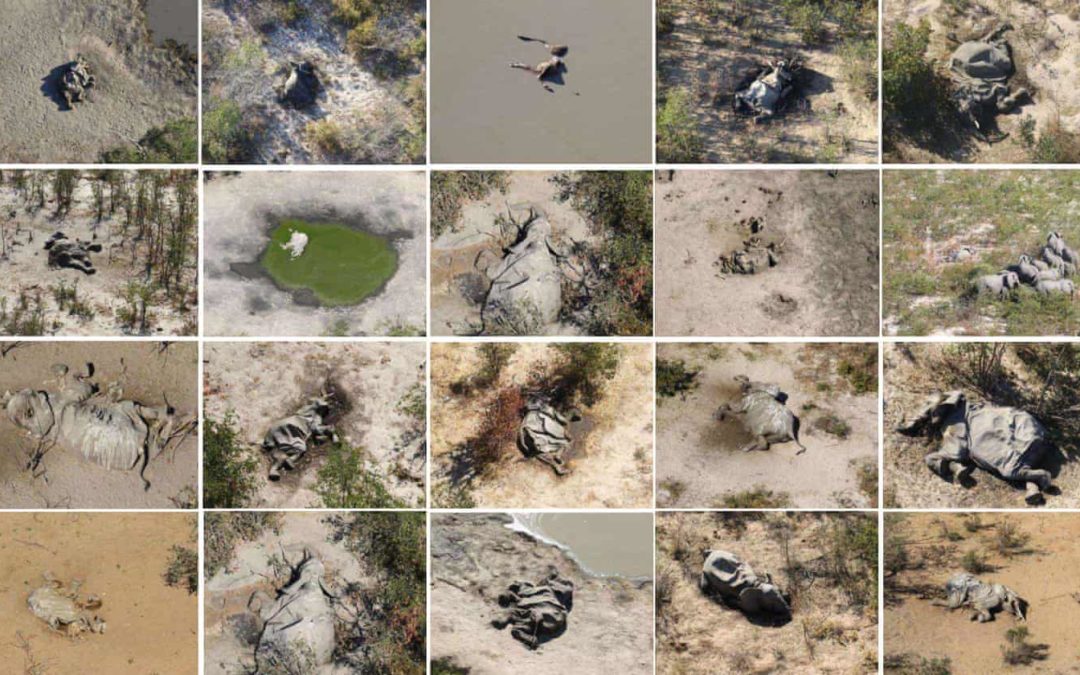SOURCE: The Guardian
DATE: July 1, 2020
SNIP: More than 350 elephants have died in northern Botswana in a mysterious mass die-off described by scientists as a “conservation disaster”.
A cluster of elephant deaths was first reported in the Okavango Delta in early May, with 169 individuals dead by the end of the month. By mid June, the number had more than doubled, with 70% of the deaths clustered around waterholes, according to local sources who wish to remain anonymous.
“This is a mass die-off on a level that hasn’t been seen in a very, very long time. Outside of drought, I don’t know of a die-off that has been this significant,” said Dr Niall McCann, the director of conservation at UK-based charity National Park Rescue.
The Botswana government has not yet tested samples so there is no information on what is causing the deaths or whether they could pose a risk to human health. The two main possibilities are poisoning or an unknown pathogen. Anthrax – initially considered the most likely cause – has been ruled out.
McCann said: “When we’ve got a mass die-off of elephants near human habitation at a time when wildlife disease is very much at the forefront of everyone’s minds, it seems extraordinary that the government has not sent the samples to a reputable lab.”
Local witnesses say some elephants were seen walking around in circles, which is an indication of neurological impairment. “If you look at the carcasses, some of them have fallen straight on their face, indicating they died very quickly. Others are obviously dying more slowly, like the ones that are wandering around. So it’s very difficult to say what this toxin is,” said McCann.
Elephants of all ages and both sexes have been dying, local reports found. Several live elephants appeared weak and emaciated, suggesting more will die in the coming weeks. The true number of deaths is likely to be even higher because carcasses can be difficult to spot, say conservationists.
“The lack of urgency is of real concern and does not reflect the actions of a responsible custodian. There have been repeated offers of help from private stakeholders to facilitate urgent testing which appear to have fallen on deaf ears … and the increasing numbers are, frankly, shocking.”

